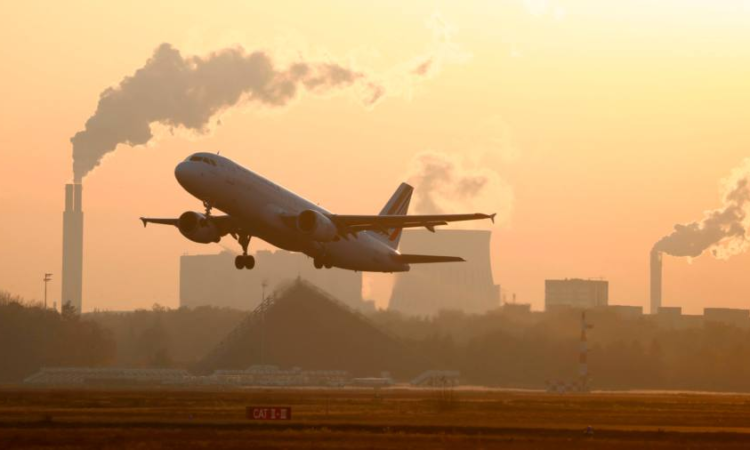
The UK will miss its target to achieve net zero emissions by 2050 in the absence of widespread changes to how people eat, travel and live, an influential parliamentary group has said.
In a sweeping report on Wednesday, the House of Lords environment and climate change committee warned that the government’s net zero plan had “too great a reliance on as yet undeveloped technologies” and that its approach to enabling behavioural change was “seriously inadequate”.
The peers called on ministers to do more to help people make changes that would cut emissions, such as eating less meat, taking fewer flights and choosing more environmentally friendly products.
They added that targeted support would be needed to ensure greener choices were affordable and that businesses offering sustainable products were competitive.
“Polling shows the public is ready for leadership from the government. People want to know how to play their part in tackling climate change and environmental damage,” said Baroness Kate Parminter, committee chair.
Although the government has set out a strategy for meeting the UK’s legally binding net zero target, consecutive official reports have cautioned that it lacks detail and does not do enough to encourage people to make sustainable choices.
Ministers have pushed back on calls to incentivise behavioural changes, arguing that people should be free to make their own decisions and that such intervention would amount to unnecessary “nanny-statism”.
But the committee rejected that approach, saying that alongside the Committee on Climate Change, which advises the government, it had calculated that “32 per cent of emissions reductions up to 2035 relies on decisions by individuals and households”.
Nevertheless, ministers tended not to focus on such changes if there was no “clean” technological alternative, it added.
The report advised the government to set dates for banning the use of high emissions technologies where suitable alternatives exist; launch a call for evidence on introducing a frequent flyer levy on long-haul flights; and clearly define some of the terms that businesses use to market products as sustainable.
“Without changes to people’s behaviours now, the target of net zero by 2050 is not achievable,” the committee said, adding that “the government needs to play a stronger role in shaping the environment in which the public acts”, including via regulation and taxation.
The committee also urged the government to “co-ordinate a national drive to improve the energy efficiency of our homes”.

Nadhim Zahawi, Cabinet Office minister, said on Sunday that a public information campaign drawn up to encourage households to reduce energy usage had been vetoed on cost grounds.
Other steps the committee judged practical included Westminster doing more to help local authorities roll out better public transport networks. A reluctance to acknowledge the need for fewer long-distance flights was “misplaced”, it said.
However, the peers said the cost of living crisis meant now was not the right time to impose a tax on carbon-intensive foods.
Giving evidence to the committee, then environment secretary George Eustice said the government was “not telling people that they should not eat meat” and had no “messages to the public about meat consumption from a food production angle”.
But Sir Patrick Vallance, the government’s chief scientific adviser, said it was “unarguable” that “behaviour change is a part of reaching net zero”.
The government said it remained fully committed to the legally binding target of achieving net zero greenhouse gas emissions by 2050. “The UK is leading the world on climate change, driving down emissions by 44% since 1990 whilst also growing our economy, which is more than any other G7 country,” a spokesperson said.






